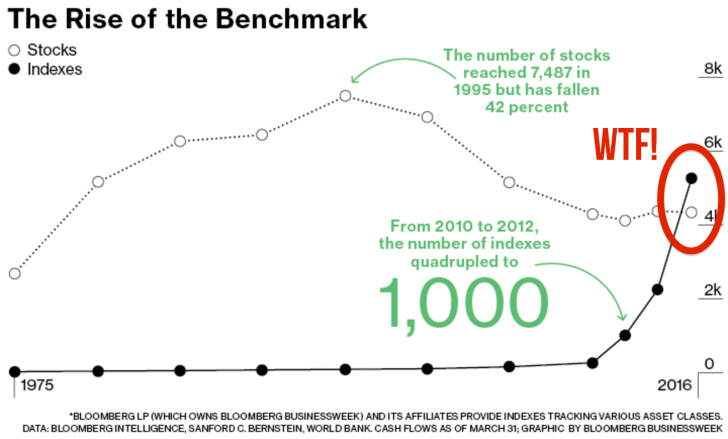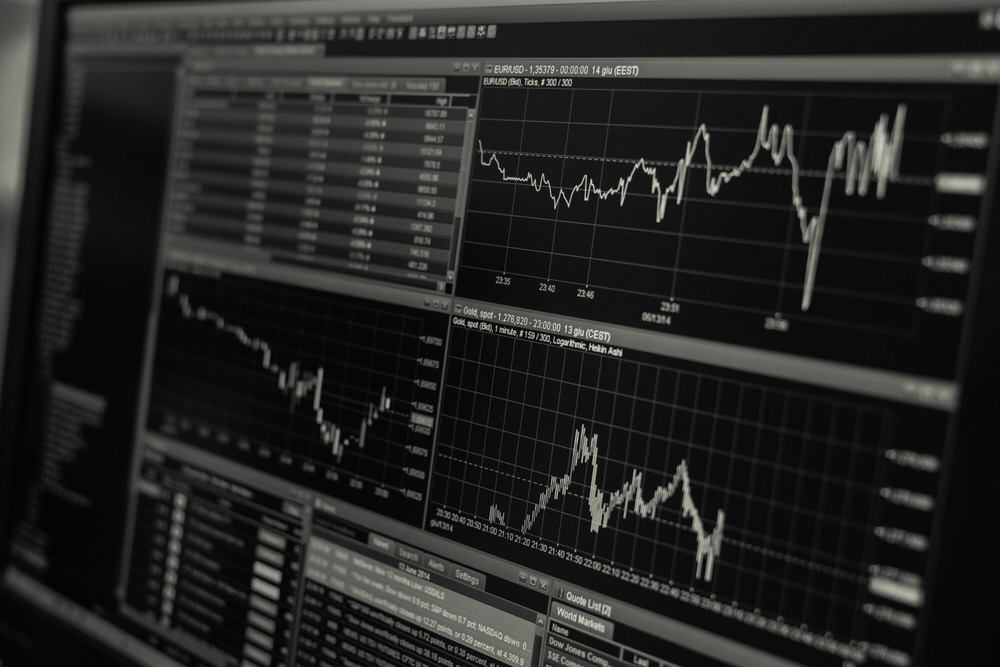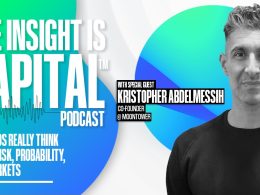There Are Now More Indexes Than Stocks
by Zerohedge.com
For the first time ever, the number of market indexes now exceeds the number of U.S. stocks...
As Bloomberg reports, traditional ones such as the S&P 500 are collections of securities weighted by market value, and index funds mimic them as a low-cost way to deliver the market’s performance. Many new indexes are different: They include stocks based on custom criteria, such as having low volatility or high dividends.The recent explosion in indexes has been driven by demand as many new benchmarks essentially repackage active investment strategies into indexes, says Eric Balchunas, senior exchange-traded fund analyst at Bloomberg Intelligence. They can then be tracked by so-called smart-beta ETFs, which fund companies are rolling out rapidly. Money managers are under pressure to cut costs, says Balchunas, as investors shift their money into funds with low fees. Smart-beta ETFs are generally more expensive than S&P 500 funds but cheaper than actively managed funds. It remains to be seen how well the new funds will perform.

As we wrote previously, for now, the debate about the impact of ETFs rages, and will do so inconclusively as long as trillions in central bank liquidity prop up broader risk assets and equity markets. It is only once central banks take start soaking up some $18 trillion in excess liquidity that the true impact of ETFs will be visible. Until then, we leave readers with thoughts from a recent note by JPM's Nikolaos Panigirtzoglou, first reported here last October, and summarized below, on what the take over by ETFs really means:
- Markets become more brittle, risky: "The shift towards passive funds has the potential to concentrate investments to a few large products. This concentration potentially increases systemic risk making markets more susceptible to the flows of a few large passive products."
- Passive or index investing favours large caps as most equity indices are market cap weighted. "This could exacerbate the flow into large companies beyond to what is justified by fundamentals, creating potential misallocation of capital away from smaller companies. To the extent that these passive funds become even more dominant in the future, the risk of bubbles being formed in large companies, at the same time crowding out investments from smaller firms, would significantly increase."
- The proliferation of index funds increases the size of stock inclusion flows. In turn, market moves around index constituent changes become more pronounced overpenalizing companies leaving the index and causing excessive gains to companies entering the index.
- Crashes, when they happen, will be bigger and badder: "the shift towards passive funds tends to intensify following periods of strong market performance as active managers underperform in such periods of strong market performance. In turn, this shift exacerbates the market uptrend creating more protracted periods of low volatility and momentum. When markets eventually reverse, the correction becomes deeper and volatility rises as money flows away from passive funds back towards active managers who tend to outperform in periods of weak market performance."
- Markets become less efficient: "if passive investing becomes too big, potentially crowding out skilled active managers also, market efficiency would start declining. In turn, this would present opportunities for active managers to extract arbitrage profits."
Copyright © Zerohedge.com















